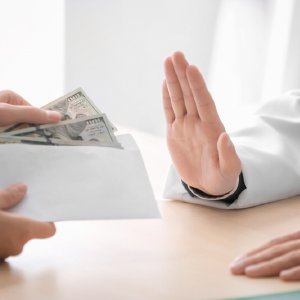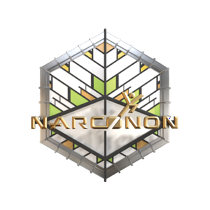Behind the Curtain of Medicine and Pharmaceuticals – How Pharmaceutical Giants Bribed Doctors to Prescribe Opioids

We’ve known for a while that when pharmaceutical manufacturers provide incentives to doctors to prescribe opioids, they prescribe opioids.
This isn’t anything new. But according to research just published at JAMA Network Open, there is a direct connection between the payments that drug companies give to opioid prescribers and an increase in overdoses in those prescribers’ communities.
Let that sink in for just a minute. There is a direct connection between drug companies’ incentives to doctors and overdoses in doctors’ communities.
Research Data Exposes Controversial Pharmaceutical Incentives
The Washington Post covered this issue, highlighting the release of a new research paper in JAMA Network Open. What we know for sure is that the aggressive marketing of prescription narcotics over the last two decades has had a direct effect on rising addiction statistics and overdose rates. And when Big Pharma is in doctors’ ears and pocketbooks, who suffers? The patients.
Now we have new data on how the pharmaceutical companies are getting doctors to prescribe the drugs that 20 years of addiction and death should have taught us we don’t need (at least not to the degree that we are taking them).
According to Professor Magdalena Cerdá, a professor of population health and the director of the Center for Opioid Epidemiology and Policy at the NYU School of Medicine, “What seems to matter most wasn’t the amount of money doctors were paid, it was the number of times they were paid.”
The more frequently doctors were exposed to face-to-face kindnesses and favors from pharmaceutical representatives, the more likely they were to increase their prescribing rates for opioid analgesics. And the result? Opioid overdoses increased in those doctors’ communities shortly after. While the research can’t prove cause and effect, the correlation is extremely suspicious.
According to the Washington Post article, “Previous research has linked drug company marketing to opioid prescribing, but the researchers (the JAMA Network Open researchers) said their study was the first to extend the comparison to overdose deaths. The new study matched federal data on overdose deaths in every county from Aug. 1, 2014, to Dec. 31, 2016, with payments to doctors for meals, speaking, consulting, and travel.”
The Washington Post article summed a total of 434,754 payments ($39.7 million) made to 67,507 physicians. That’s 1 in 12 doctors inappropriately influenced by pharmaceutical companies.
New Information Makes an Old Story Relevant Again

A CNN article from almost a year ago was one of the first to shed light on the fact that opioid manufacturers were incentivizing doctors to prescribe their drugs. These incentives came in the form of cash bonuses, free coffee mugs, paid-for lunches, expense-paid trips to “conferences,” paid speaking gigs, etc.
According to Dr. Andrew Kolodny, one of the senior scientists at the Institute for Behavioral Health at the Heller School for Social Policy and Management, as well as co-director of the Opioid Policy Research Collaborative and executive director of Physicians for Responsible Opioid Prescribing: “This is the first time we’ve seen this, and it’s really important. It smells like doctors being bribed to sell narcotics, and that’s very disturbing.”
“I don’t know if the money is causing the prescribing or the prescribing led to the money, but in either case, it’s potentially a vicious cycle.…”
According to Dr. Michael Barnett, the assistant professor of health policy and management at the Harvard T.H. Chan School of Public Health, “I don’t know if the money is causing the prescribing or the prescribing led to the money, but in either case, it’s potentially a vicious cycle. It’s cementing the idea for these physicians that prescribing this many opioids is creating value.”
This is what concerns us most. This isn’t a bloodthirsty dictum demanding justice on Big Pharma. What we’re concerned about is this: is it morally sensible and in patients’ best interests when pharmaceutical opioid companies incentivize doctors to prescribe their drugs? And with new information on such actions linked to increasing overdoses in the areas where incentivized doctors prescribe, this doesn’t look like what’s in the patients’ best interests at all.
Avoiding Addiction Risk to Patients – How We Should Proceed with Opioid Prescribing

We need to think about the adverse effect that a close relationship between pharmaceutical representatives and doctors will have on patients.
Such is a conflict of interest, plain and simple.
Doctors need to act in the best medical interests of their patients. Doctors must have the freedom to make decisions for their patients’ health, independent of advice or suggestion from Big Pharma.
Again, this article does not mean to demonize or vilify the pharmaceutical industry or the medical industry.
Not all pharmaceutical representatives or doctors are bad. Most of them are genuinely trying to help people. But a minority of corrupt individuals and their actions can create a majority problem. And that problem manifests in the form of millions of Americans addicted and tens of thousands of fatal overdoses every year.
We have to fix this.
In closing, a direct quote from the JAMA Network Open research paper is fitting. “In this study, across U.S. counties, marketing of opioid products to physicians was associated with increased opioid prescribing and, subsequently, with elevated mortality from overdoses. Amid a national opioid overdose crisis, reexamining the influence of the pharmaceutical industry may be warranted.”
“As long as pharmaceutical companies are allowed to incentivize doctors to prescribe their drugs to patients, we will never break free from this health crisis. ”
We have to end this madness of corporate business and money-making interests controlling our efforts at pain relief. The health and pharmaceutical industries are supposed to have patients’ interests as the guiding principle. They’re not supposed to prioritize their own coffers over patient safety.
The last twenty years has made drug addicts out of everyday patients who sought pain relief for their ailments. Now our nation is gripped in the clutches of an opioid epidemic, and we can’t seem to break free.
As long as pharmaceutical companies are allowed to incentivize doctors to prescribe their drugs to patients, we will never break free from this health crisis.
We have to hold pharmaceutical companies accountable, push for better care for patients, and curb the flow of addictive pills into the hands and mouths of Americans everywhere.
Sources:
- https://www.wsws.org/en/articles/2019/01/22/drug-j22.html
- https://jamanetwork.com/journals/jamanetworkopen/fullarticle/2720914?guestAccessKey=630f38c9-ac45-406f-8764-b04eef425ce7
- https://www.cnn.com/2018/03/11/health/prescription-opioid-payments-eprise/index.html
Reviewed by Claire Pinelli ICAADC, CCS, LADC, RAC, MCAP


